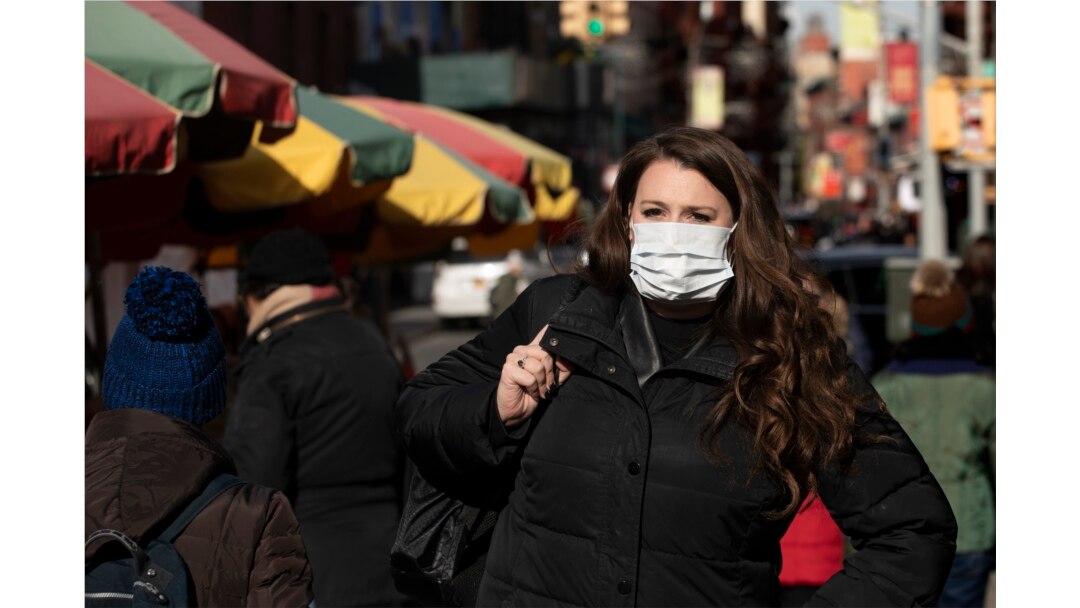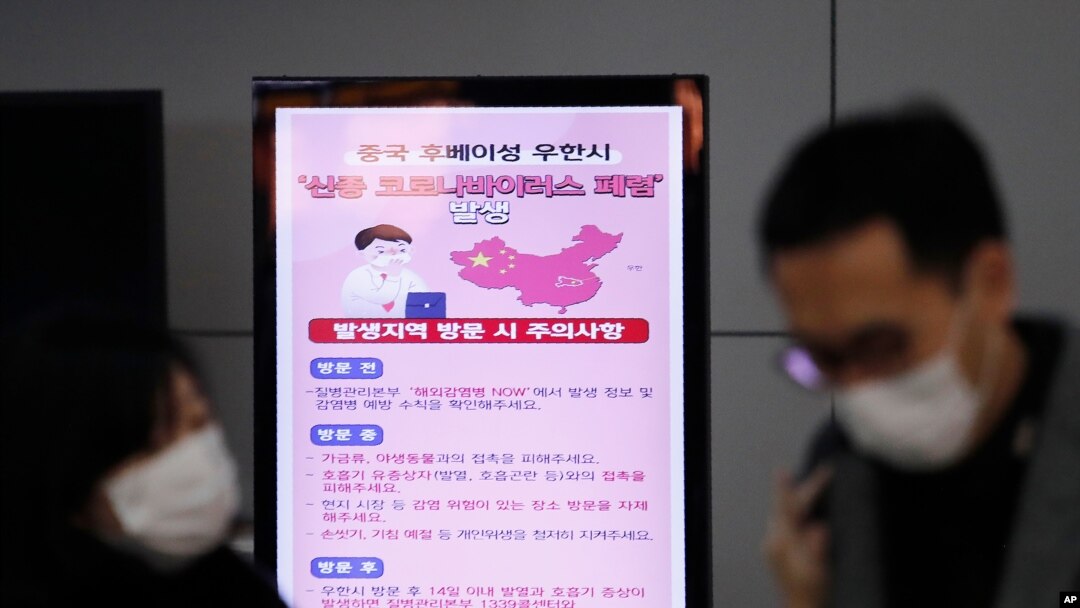The Trump administration is warning Americans not to travel to China as the number of confirmed coronavirus cases grows rapidly.
The State Department issued what it calls a Level 4-Do Not Travel advisory. It also is recommending that anyone currently in China leave.
The Centers for Disease Control and Prevention issued Tuesday a Level 3 notice, advising Americans to avoid all nonessential travel to China.
The CDC said none of the 195 American passengers evacuated Wednesday from Wuhan show symptoms of coronavirus. They will remain at a U.S. military base in California at least through the end of the week.

FILE - The World Health Organization's (WHO) logo is seen at the entrance of the UN agency's headquarters in Geneva, Switzerland.
Earlier Thursday, the World Health Organization declared the coronavirus outbreak, which originated in Wuhan and has spread from China to 18 other countries, a global health emergency.
Thursday’s announcement from Geneva means the WHO regards the outbreak as an “extraordinary event” needing a coordinated international response.
Person-to-person transmission
Experts say there is evidence of people-to-people transmission of the virus.
The CDC Thursday reported the first case of human transmission in the U.S. Doctors say a Chicago man caught the virus from his wife who had been in Wuhan. He is the sixth confirmed coronavirus case in the United States.

A woman, who declined to give her name, wears a mask, Jan. 30, 2020, in New York. She works for a pharmaceutical company and said she wears the mask out of concern for the coronavirus.
India and the Philippines announced their first confirmed cases Thursday, joining a growing list that includes Australia, Canada, Finland, France, Germany, Hong Kong Japan, Nepal, Singapore, South Korea, Thailand, the United Arab Emirates and Vietnam.
China’s health commission said early Friday that number of confirmed cases now exceeds 9,000, up more than 1,000 in just a day. About 200 people have died.
The WHO said earlier that nearly all of the world's reported cases were in China, as were all the deaths. Just 98 cases had been confirmed outside China, including eight cases of human-to-human transmission in four countries: Germany, Japan and Vietnam, plus the U.S.
The United States has evacuated more than 200 people from Wuhan. Several other countries have also evacuated their nationals, and some international airlines have suspended direct flights to China.
A Ukrainian exchange student in Wuhan, Monika Rustamova, told VOA that people in the city were generally calm, but all people were wearing masks. She said she and the other students are screened before they leave the campus and again when they return.
Another Ukrainian student, Dmytro Yatskovsky, in Lanzhou, capital of Gansu province, said it was the foreign exchange students who were panicking and spreading lots of false information — something he said could bring punishment under Chinese law. But Yatskovsky said he trusted Chinese authorities, saying they acted quickly and had all the resources needed to keep things under control.
Paramilitary officers wearing masks line up in front of the Tiananmen Gate, as China is hit by an epidemic of the new coronavirus, in Beijing, Jan. 30, 2020.
The White House has said it is considering further restrictions on U.S. airlines flying to China, in addition to the voluntary restrictions implemented by some air carriers. It has not yet decided whether to impose a travel ban.
The CDC's Dr. Nancy Messonnier said the symptoms of a cold or the flu and the coronavirus were the same, but the risk factors for the latter involved having visited China's Hubei province or having close contact with those who had been there.
Lisa Schlein contributed to this report from Geneva.


